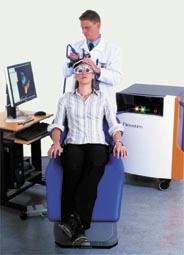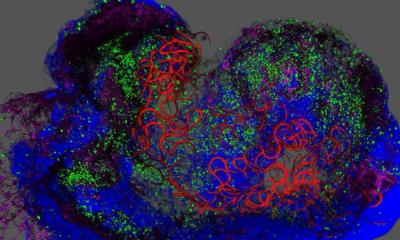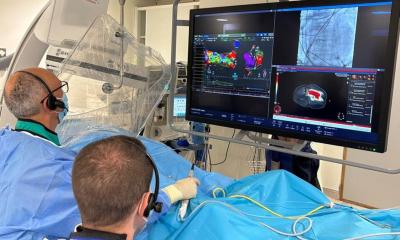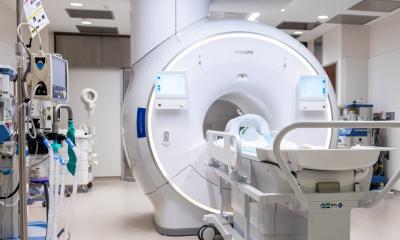Closing in on the brain
The new Nextim system, eXimia NBS is a novel brain stimulation technology which provides individual measures of the health and functional capacity of the central nervous system, as well as of brain reactions to targeted magnetic pulses. Thanks to its advanced technology and proven clinical performance, the NBS system helps medical professionals to focus on the issues that matter the most - and to find the shortest way to the core of non-invasive brain stimulation.

The eXimia NBS aligns the MR images with the subject’s head real-time – targeting and timing the transcranial magnetic stimulation (TMS) pulses accurately. The direct muscle and brain responses (EMG and EEG) evoked by TMS stimulus can be recorded with high temporal resolution. The eXimia NBS system is fully compatible with Nexstim, Medtronic and Magstim TMS stimulators. As the activation of stimulated neuronal structures is instantly visible, the effects of the stimulus can be quickly determined. Since the eXimia NBS system also predicts and monitors the stimulus location and dose within the brain, it can detect and identify minor alterations in neuronal functioning.
In clinical work, the eXimia NBS Navigation system helps neurologists and neurosurgeons to diagnose and treat human brain diseases, trauma, and dysfunctions earlier and more accurately than before. NBS is not limited to structural alternatives – instead, it opens a new window to the functions of the human brain. The eXimia NBS provides solid platforms for new, advanced studies of the central nervous system.
14.11.2006





